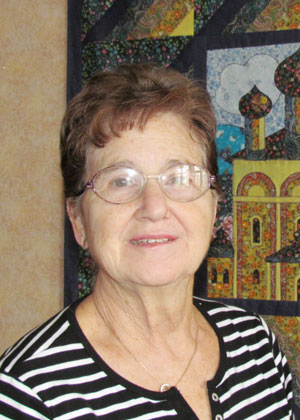Practice makes perfect
Изучение любого иностранного языка – процесс довольно сложный, но необходимый для тех, кто хочет преуспеть в жизни. Как сделать так, чтобы изучение (или совершенствование английского) стало не проблемой, а удовольствием? В этом вам поможет преподаватель Lenore Wade, которая рассказала о наиболее распространенных сложностях при обучении. Cегодняшняя статья будет о многозначности слов.

Lenore Wade. Born and raised in Hollywood, California. Has lived in San Diego, California, for more than 40 years. She has also lived in the states of Ohio and North Carolina. 12 years of Catholic School education. Started college at the age 28 with 3 small children. Graduated from San Diego State University.
Learning a foreign language is difficult. Some of us learn more easily than others. Even when we try as hard as we can, we still feel that, often, there are too many mistakes.
As an American teacher who has lived in Russia for many years, I often feel frustrated and «stupid». I keep making the same mistakes over and over again. But I have learned not to give up. «Practice makes perfect!» It is only through making mistakes that we learn to solve the difficult problems that cause us to feel unguccessful.
Here, in this newspaper article, I hope to help you understand a few of the words that can cause you difficulty. English, like Russian, has words with more than one meaning and they are used in different ways under different circumstances.
You are taught that the Russian word «удобный» means comfortable or convenient. These 2 words do not mean the same thing in English. Comfortable means to feel at ease or providing comfort. Convenient means laborsaving or something more easily achieved. I will give you several examples of how these are used English sentences in hopes that you can understand the difference.
1) The queen sat comfortably on the throne while waiting for the king to arrive.
2) My new bed is so comfortable that I want to sleep all day long.
3) These new shoes are not as comfortable as my old ones. Hopefully, soon, my feet will not hurt!
1) Is the bus a convenient distance from your office? I don’t like you walking far in the evening.
2) It is convenient to have a supermarket close to my house.
3) I find it is a greut convenience that my grandmother lives close to the family.
Two words that are often used incorrectly are contain and consist. The word, contain means to hold within, or to include. Consist means to be composed or made up (usually used with the word «of»).
1) The new medicine contains a dangerous drug.
2) Containing our enthusiasm was difficult when the rock star came on stage.
3) I keep flour and sugar in separate containers in the kitchen.
1) The school curriculum consists of English, Math, Science, and Geography.
2) The recipe says that the cake consists of flour, sugar, eggs, and a secret ingredient.
3) The state system of roads consists of highways, streets, boulevards, and lanes.
Although the words bake and cook are used in our everyday lives, both in Russia and America, they are often used without thought to what the words actually mean. To cook means to apply fire or heat, while to bake means to apply dry heat.
1) The best chefs in the world can cook anything and make it taste good!
2) Shashlik must cook over a low fire so it doesn’t burn
3) You must be careful when cooking on the stove, it is easy to get burned.
1) My grandmother lets me help her when she bakes cookies.
2) The lasagna must bake for 45 minutes in the oven.
3) To me, baking means to creute something that is warm, sweet, and wonderful.
While writing this article, I received a message from a teacher where a word was incorrectly used. I decided it was a perfect time to include the words to help with understanding. Usual is an adjective which means normal, ordinary, or commonly used. Usually is the same word, but used as an adverb.
1) Dinner will be early tonight, not at its usual time.
2) As usual, classes begin at 9:00 in the morning.
3) The unusual response from the teacher was met with groans from the students. (opposite meaning)
1) Usually, I expect to be paid when I work.
2) Sometimes I am sad, but usually I am happy with a smile on my face.
3) When does your mother usually pick you up from school?
I hope that these examples will help you to understand some of the problems that you may have when using the English language. Next time, I will address some different words that are also difficult.
Remember, «Practice Makes Perfect». Don’t give up!
I completely agree with you! Practice is the key to success in any field. Whether it's learning a new skill or achieving a goal, consistent practice and dedication can make a big difference.
It's important to remember that progress may not always be immediately visible, and setbacks are normal. But if you keep at it and continue to practice, you'll eventually start to see the results you're looking for.
It's also important to not give up when things get tough. The road to success is not always easy, but the hard work and effort you put in will pay off in the end. Keep pushing yourself and never give up on your dreams and goals.